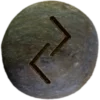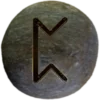Last Updated on October 18, 2024
Table of Contents

Helgakviða, also known as The Lay of Helgi or The Helgi Lays, refers to poems in the Poetic Edda. These poems recount the heroic deeds of Helgi, a legendary warrior associated with the Völsung family. There are two major poems, Helgakviða Hundingsbana I and Helgakviða Hundingsbana II. They focus on Helgi Hundingsbane, and Helgakviða Hjörvarðssonar, centered on Helgi Hjörvarðsson.
In Helgakviða Hundingsbana I, Helgi Hundingsbane, the son of Sigmund and Borghild, embarks on a journey of vengeance against Hunding, a king who wronged his family. Helgi defeats Hunding and earns his name as Hundingsbane, meaning “the slayer of Hunding.” Along his journey, he meets and falls in love with the Valkyrie Sigrún, who becomes a significant figure in his life. However, Helgi’s life remains filled with warfare, and his fate takes a tragic turn, culminating in his eventual death.
Helgakviða Hundingsbana II continues the story, focusing on Helgi’s death and the deep grief experienced by Sigrún. The poem describes how Helgi briefly returns from the dead to reunite with Sigrún. It showcases the connection between love and the supernatural in Norse mythology. This poetic cycle emphasizes the themes of love, honor, and the inevitability of death, while intertwining the human world with the realm of the gods and spirits.
Helgakviða Hjörvarðssonar features Helgi Hjörvarðsson, another heroic figure, though his story differs from that of Helgi Hundingsbane. This poem explores similar themes of valor, love, and heroic deeds, solidifying Helgi’s place as a prominent name in Old Norse heroic poetry.
Elder Futhark Runes Associated with Helgakviða
The Tiwaz rune aligns with the themes in Helgakviða. Associated with the god Týr, this rune represents honor, justice, and warfare. Helgi’s heroic acts, battles, and pursuit of justice reflect the qualities Tiwaz embodies. It symbolizes the dedication to duty and honor, which Helgi displays throughout the poems.
Importance in Asatru
In Asatru, Helgakviða reinforces values of courage, loyalty, and sacrifice. Helgi’s heroic deeds, sense of honor, and tragic love story reflect core principles. His relentless pursuit of justice and his bond with Sigrún illustrate the power of fate, which is vital to Asatru’s worldview.


